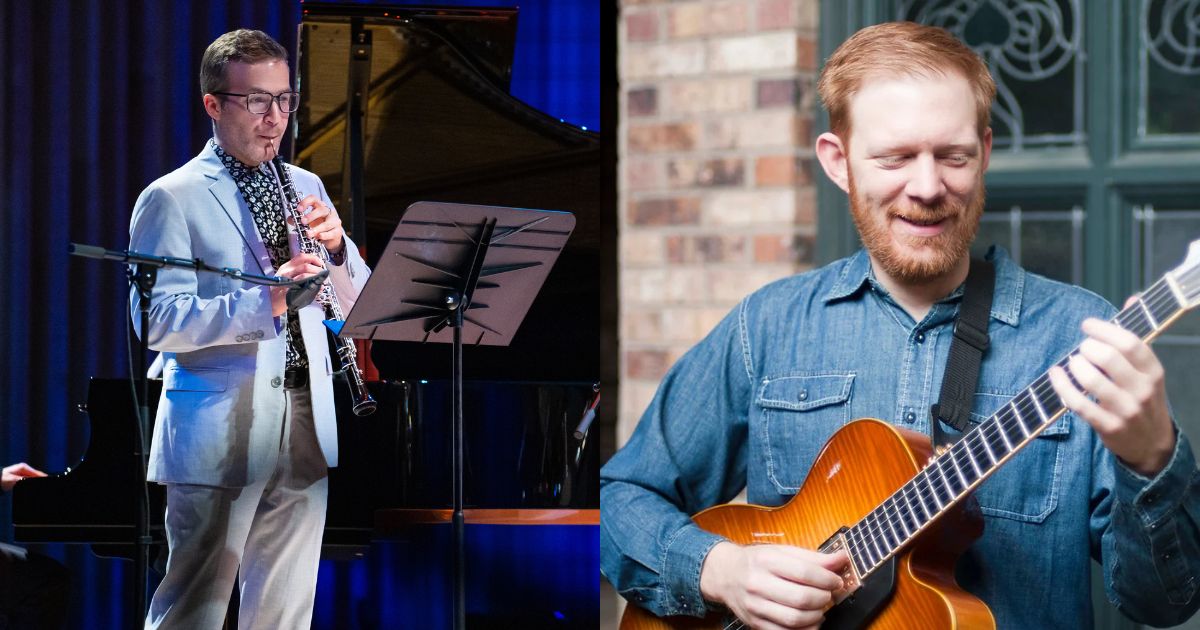
“At no time in my career has my education from UNC ever let me down,” says Maestro Lowell Graham, ’70, M.A. ’71, as he begins to explain why he wants to give back to the university.
This is a weighty statement from someone who has had a highly distinguished career, including as commander and conductor of the premier musical organization of the United States Air Force, conductor of musical ensembles around the world, professor of Music at The University of Texas at El Paso (UTEP), president of the American Bandmasters Association and John Philip Sousa Foundation, creator of a Grammy-Award-winning recording and recipient of numerous awards and Hall of Fame spots in music organizations and universities.
Graham’s impressive journey started in Greeley, where he was born and raised. As a student advancing through the local public school system, he quickly fell in love with the clarinet and music in general. He explains that his choice about college was not really a choice. If he was going to get a degree, it was going to be at UNC (then Colorado State College) on a tuition waiver from the band program because he couldn’t afford to pay for higher education. Graham describes his time at UNC with much gratitude, naming his great teachers like Wayman Walker, Edwin “Buddy” Baker, Evan Copley, Howard Skinner and Rita Hutcherson.
After receiving his Bachelor of Arts in Music Education, Graham subsequently pursued a Master of Arts in Clarinet Performance at UNC. Through church music jobs during this time, he discovered that he was drawn to conducting. Assessing large amounts of information had always been his natural skill, so he continued to pursue being in front of a musical group every chance he got. As he progressed in his career after UNC, Graham kept reaching higher goals, eventually becoming a U.S. Air Force Colonel and the senior-ranking musician in the U.S. Department of Defense.
When asked how he maintained his sense of confidence and humility through the risks and high-pressure situations that pervaded his career, Graham cites one conversation with Hutcherson back at UNC that he found life-changing. As he was preparing for a recital with her as a young college student, he must have looked quite worried because she took his arm and asked, “Lowell, are you nervous?” When he replied that he was about to pass out from nervousness, Hutcherson responded, “Lowell, everyone in the audience wants you to do well. They are your friends.”
This sense of sharing music with his friends in the audience stuck with Graham as one of the lasting aspects of his UNC education, even when he was conducting the U.S. Air Force Band and big-name guest artists like Glen Campbell, Chaka Khan, the Miracles, Ray Charles and Wynonna Judd.
“It’s just music. It’s just people…that’s all it is,” he summarizes.
For Graham, this idea is not just for the stage, but also for the classroom. His deep value of music education has been consistently present on his journey. He describes being the Chair of the UTEP Department of Music and telling the professors under his leadership, “I’ll teach whatever you don’t want to teach.” Graham sees teaching music as an integral and unavoidable part of every musical situation, and he finds it all to be about the people, about watching them blossom.
As Graham reflects on his career, he talks about the fleeting nature of performing music and finding a way to leave something lasting—a legacy that impacts people. He wants to join his former UNC professors like Walker, Copley, Skinner and so many others in influencing and supporting future UNC music students. That’s why he has chosen to give $1 million to the School of Music to support student scholarships and creative research for faculty.
He wants students like him to have that “no-brainer” choice of coming to UNC for music regardless of their financial circumstances.
Graham says it all when asked what music means to him (referencing the football star Dani Rojas in the recent TV series Ted Lasso): “Music is life!”
This article came from the Winter 2025 Arts ID Magazine. Read the full publication.
More Stories
-
From UNC to the National Stage: Opera Singer Kayla Nanto, ’15
Este artículo no está en español.
-
Bridging Art and Advocacy: That Day in Tucson
Este artículo no está en español.
-
Memorable Melodies, Music Faculty Shine with Grammy Nominations
Este artículo no está en español.
-
A Glimpse into the New Hybrid Master of Arts in Studio Art
Este artículo no está en español.





